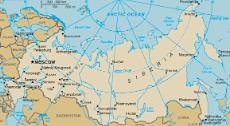Last week, Moscow violated the Conventional Forces in Europe (CFE) Treaty by failing to provide NATO countries with information about Russian military forces in Europe. Russian diplomats said they had only "suspended" their participation in the treaty regime and were prepared to resume exchanging data as soon as NATO governments met certain Russian demands regarding the agreement. Although the long-term implications of Russia's CFE moratorium remain unclear, they are clearly worrisome. In the worst case, Moscow could disengage from other arms control agreements that have underpinned European security since the Cold War. The original CFE Treaty is a complex instrument that established equal ceilings of major conventional weapons (tanks, armored personnel carriers, artillery pieces, combat aircraft, and attack helicopters) for both NATO and the Warsaw Pact. The treaty also created several sub-regions where both blocs could deploy equal numbers of the specified weapons systems, with further limitations on how many of each item could be kept in active units. In addition, it instituted a sophisticated system of monitoring, inspections, and verifications to enforce these limits.
Russia’s CFE Suspension Threatens European Arms Control

